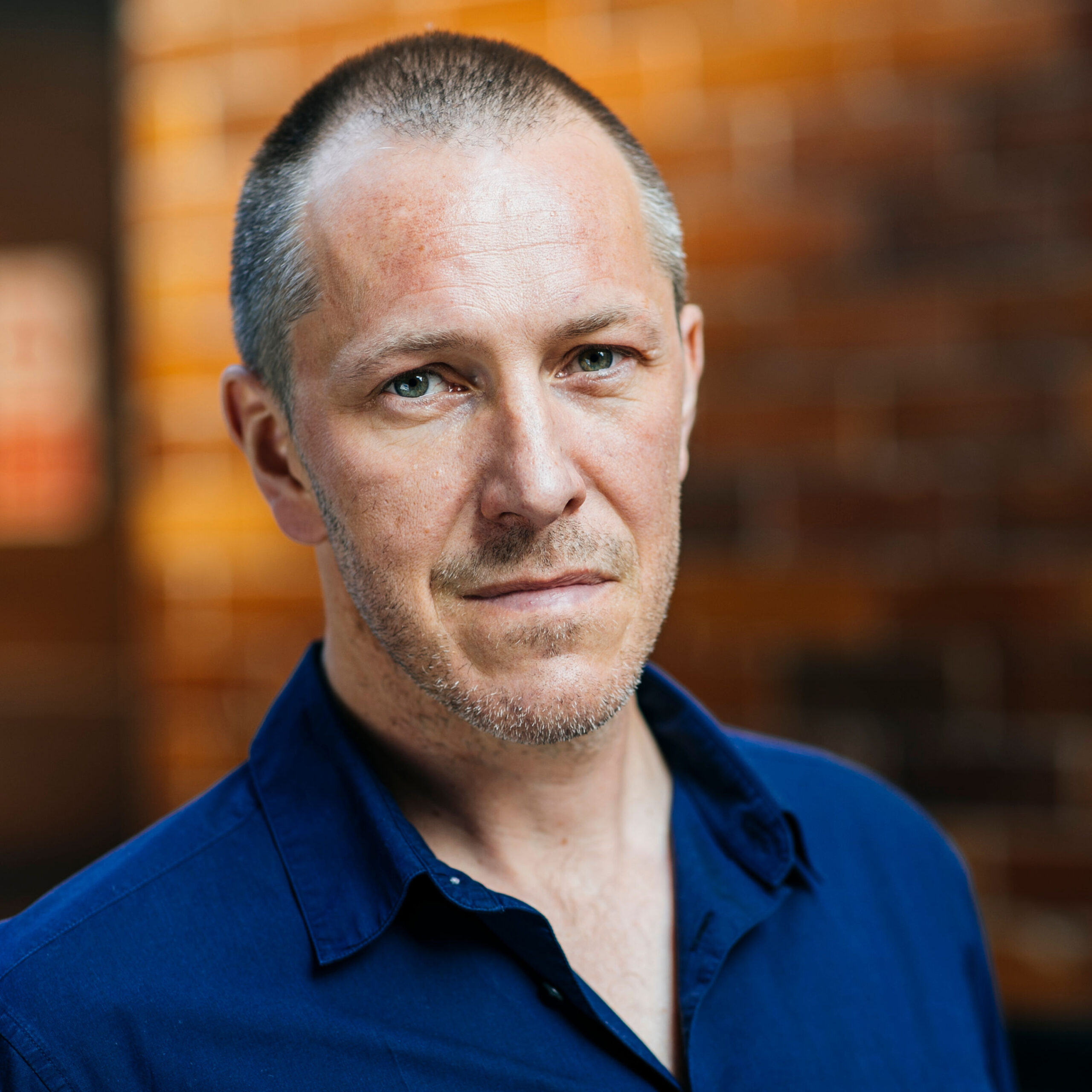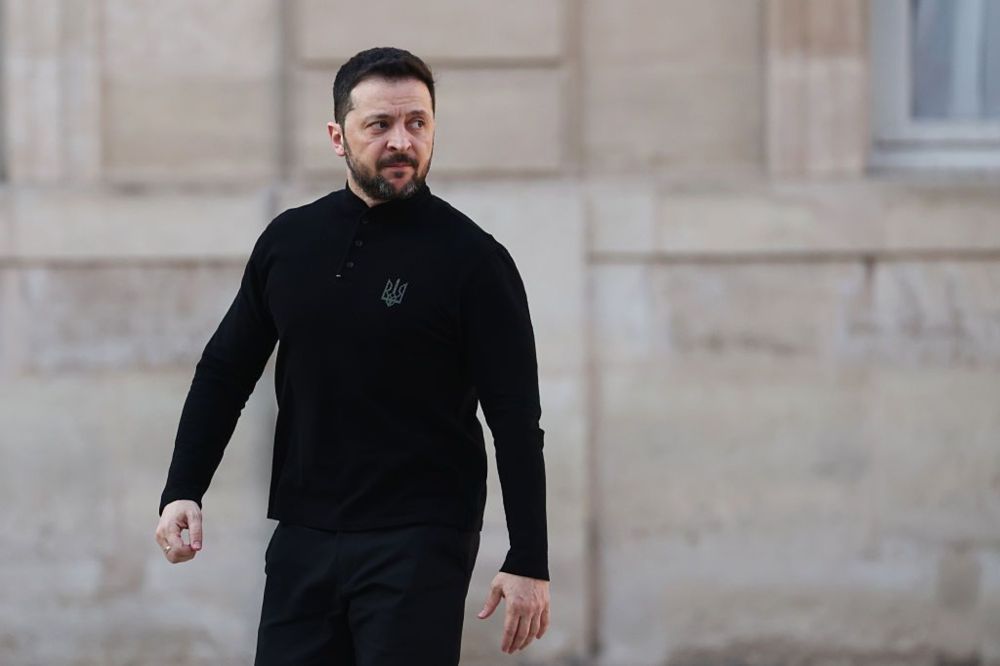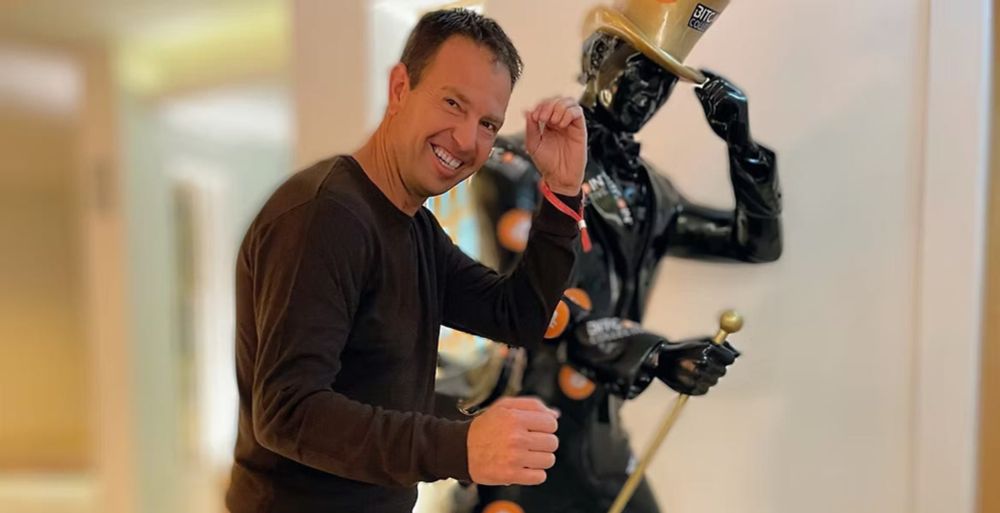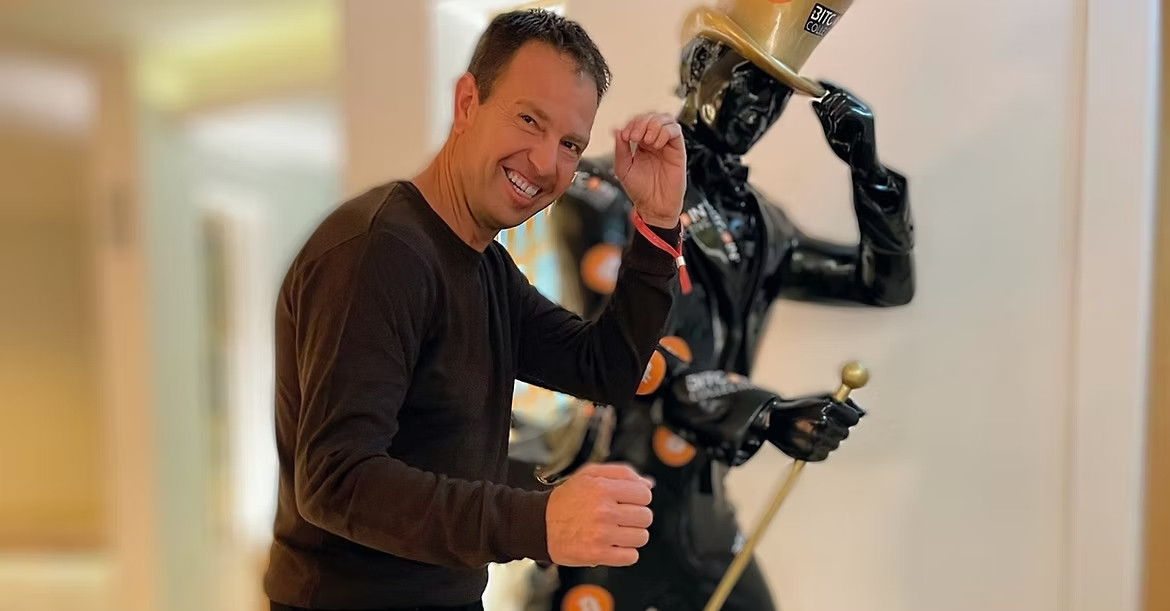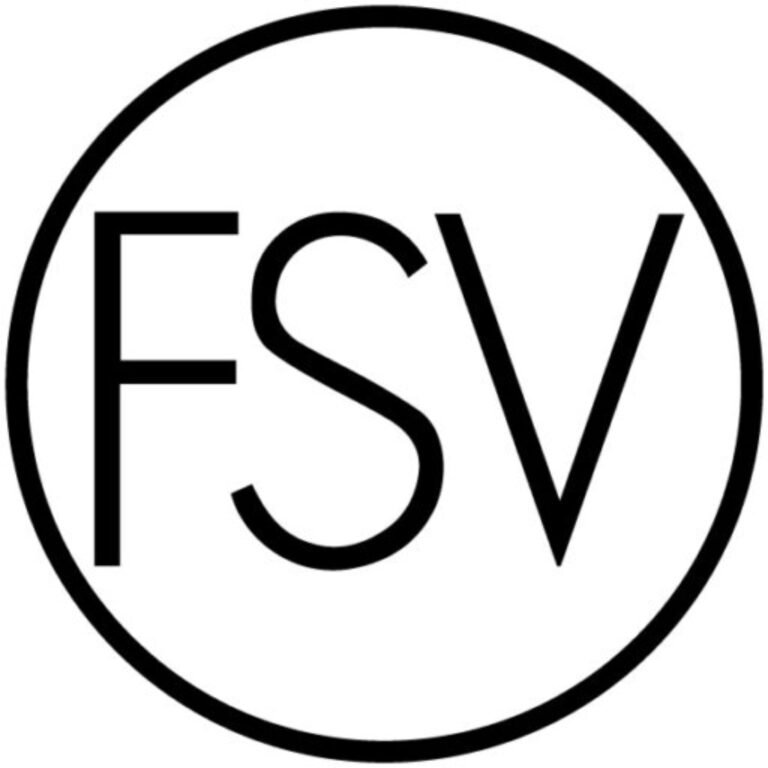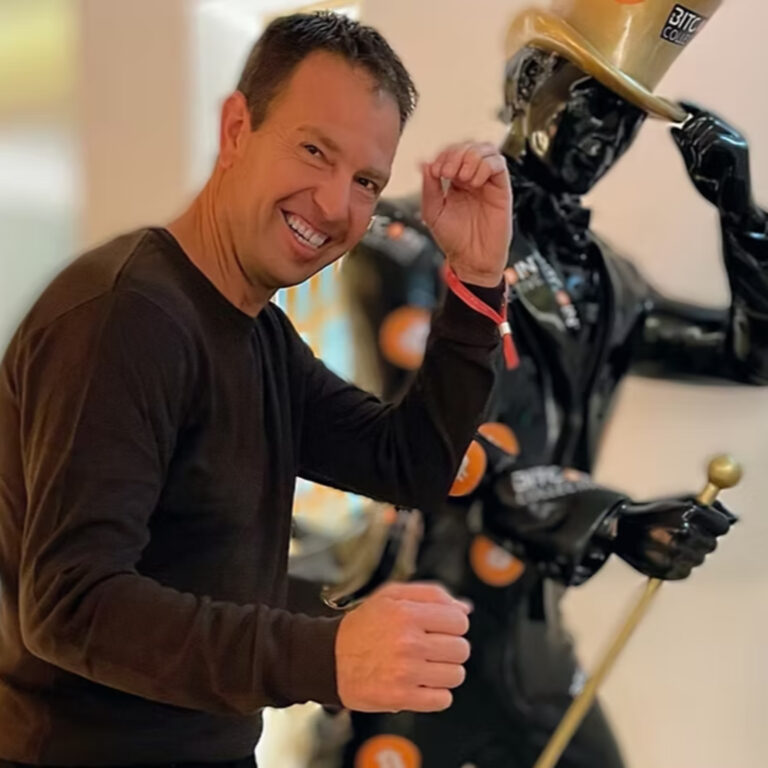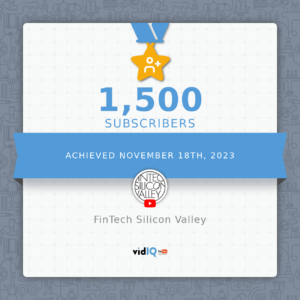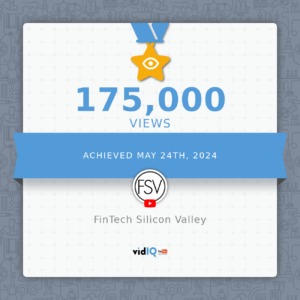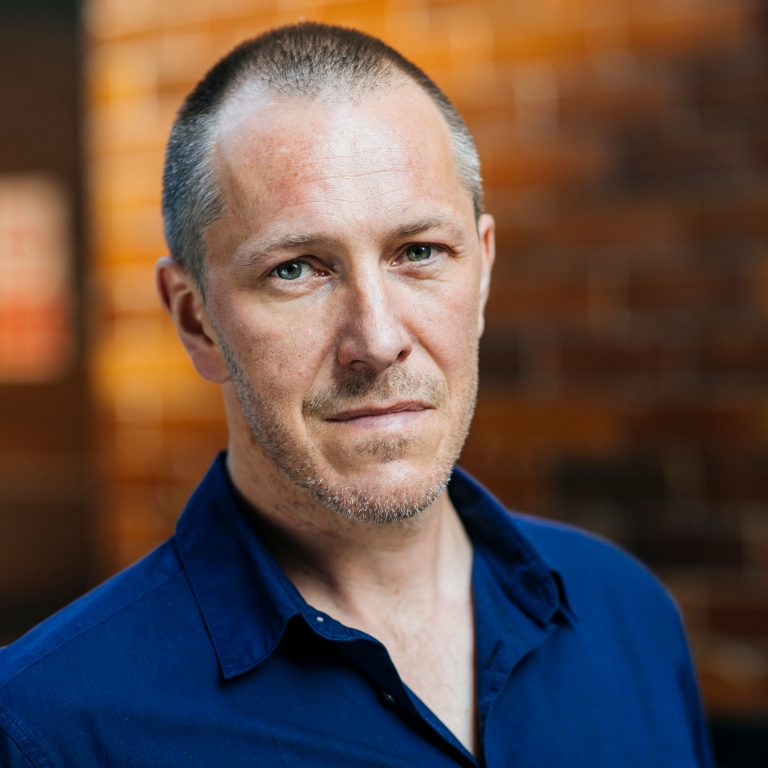
Fred Destin Founder Stride.VC, a seed-stage fund focused operating in London and Paris, which he started with Harry Stebbings (a.k.a. the Twenty Minute VC) and Pia d’Iribarne. Prior to Stride, Fred was a General Partner at Accel and Accomplice (f.k.a. Atlas Venture). Of 17 investments he led, 10 have exited and 4 are active value drivers, including 5 companies in excess of $1BN in value (including Zoopla, Deliveroo and Pillpack). His portfolio has a total enterprise value of more than $10BN and he generated in excess of $700M in exit value to investors.
Fred Destin Founder Stride.VC, a seed-stage fund focused operating in London and Paris, which he started with Harry Stebbings (a.k.a. the Twenty Minute VC) and Pia d’Iribarne. Prior to Stride, Fred was a General Partner at Accel and Accomplice (f.k.a. Atlas Venture). Of 17 investments he led, 10 have exited and 4 are active value drivers, including 5 companies in excess of $1BN in value (including Zoopla, Deliveroo and Pillpack). His portfolio has a total enterprise value of more than $10BN and he generated in excess of $700M in exit value to investors.
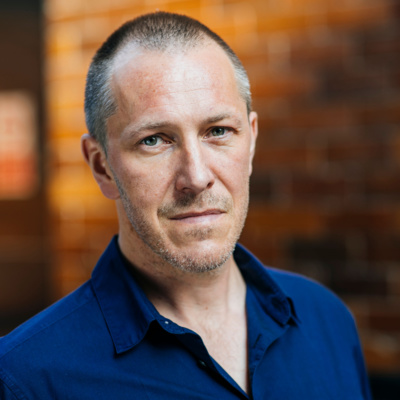
FRED: I’m good. I would say, I feel like I live the life of a monk, you get up, pray, work, sleep, repeat. It’s like every day is the same. So that’s a little bit boring. But I’m pretty good at getting a varied routine together. I’m actually fairly productive. I’m just bored. So boredom is my main enemy. I’m divorced, so I get my kids, you know, every other weekend, I take them for date nights during the week, but I’m alone a lot of the time, so that’s the only thing that’s hard.
PEMO: Oh, I know that one. But sometimes there’s wonderful teachings and learnings to be had from having to face all of your monsters and strengths.
FRED: Yeah, yeah, for sure. It’s nice to be with yourself. Yeah.
PEMO: Right. And lovely to talk to you again after so long. And so would you tell me a little bit about what’s happening in London? I used to live up in Tufnell Park for a couple of years, before I came over here.
FRED: Well it’s clear they implemented lock down about six weeks ago, but there are parts of the city where it’s still surprisingly active. I live close to a Moroccan Portuguese High street and the shops are open and and people are out and about. And so it’s quite mixed. I think some people are very respectful of the lockdown and some people don’t seem to care. So that’s partly why the cases are a bit like the U S. Its been on a plateau for a while because I don’t think the lockdown is super strict. They had shortages for a while, but they generally have performed ok.
PEMO: Right. And so tell me what’s happening in the startup ecosystem over there. And what’s it like for startups at the moment, people going to the wall
FRED: It’s mixed actually. So, you know, a lot of our portfolio has been doing surprisingly well. So we did careful assessment company by company and it’s really this acceleration of tech is no joke and you could see it across the results. So people have had a good month of April typically, and there’s been somewhere between the hiring freeze and 50% reduction in burn, so that, that’s roughly the scope. But nothing, nothing dramatic so far. My personal view is people are liking imaginations, how bad it’s going to be and don’t fully recognize the structural impact that’s, going to come. So I think it’ll be long and deep and it’s going to get worse. But I think there’s a sense of day to day normalities I think people forget, they read the data and they read what’s happening with it. They sort of think like it’s not, maybe not good impact I suppose.
PEMO: Well, it’s such a shock I guess. I mean in a way I was in denial initially I just thought, Oh, this is big hullabaloo about nothing. And then all of a sudden shelter in place was enforced in California and that was it. And I was like, Oh my God. So, you know, it took me by surprise. I’m sure a lot of people. So how can you prepare for something like that as far as being in a business? For me, all my events just shut down immediately and I can’t even go in live stream a panel or anything and then publish that. So you really have to think quickly on your feet about what people need and what sort of things that need to be offered. So yeah,
FRED: I mean my gym moved fully offline, fully online almost immediately. I go to a gym it’s sort of a procure gym only has 300 members. And it’s like a little community, but I mean everything. And I was just talking to the guy who runs it the other day and he said they haven’t lost a single member. So what they did was they reduced pricing a little bit to reflect online only but haven’t lost one. So I mean, long, long may that last. But I think people feel like it’s their responsibility to support and stuff.
PEMO: Yeah, yeah. Yeah. Wow. So what’s your advice to your portfolio at folio companies at the moment?
FRED: The first thing we talked about was getting yourself as a founder into the right mindset. And what I mean by that is it’s the mindset of the marathon runner. And I always talk about this Stockdale paradox, which is this famous, US Admiral. I think he was taken and tortured for seven years by the Vietcong, and he came out of there. Not only did he survive, but he came out of there in incredibly good shape mentally. And the reason for that is he said from the beginning, I’m not going to let this defeat me. I will survive. And not only that, but I will take the hardship that comes my way as a learning and improvement experience. And he came out stronger, more empathic, just a better person on the other side. And so the Stockdale paradox is that when he’s asked who died, he said, well, the people who died in captivity are the optimists, because the optimist would always think, Hey, we’ll be out by Christmas.
FRED: Well that will be Christmas. And then another Christmas would pass and it still be in. And he says they all died of a broken heart. So the first thing is sort of readjusting your mindset so that you can endure. And so that you view this as a way to strengthen your company. You learn and you know, and focus on, focus on the fact that you will prevail through this and you will build something. Great. Um, the second thing is, you know, helping them a little bit, manage their own emotions because they sort of have to be a Ray of sunshine to their team. You know, they can’t see that they’re stressed or down. They can’t be seen to be stressed or down by other members of the team. And so it’s really also, it’s important, I guess you can be a person that they can talk to without any form of agenda.
FRED: So one of the first thing that I tell them is, look, we don’t care about the forecasts. We don’t care about hitting numbers. All we care about is making the right decisions together because you know, God knows what’s coming, right? So you kind of try and release the pressure in that way and say, look, let’s just focus on, there’s a few key decisions we need to make. Let’s focus on having cool heads and making the right decisions together. And you can come to me with anything that’s going wrong, that’s tough, that is panicking you, decisions you’re having a hard time making, whatever it may be so that you can kind of be a little bit of a safe space. I suppose, to talk about these things openly. And then, we get into, okay, what is the right trade off between reducing our burn rate and extending our runway versus doing real damage to the company because you have to cut into muscle somewhat, but you don’t want to put too much operational risk on these businesses. And it’s kind of striking that balance between being more efficient with capital and conserving cash versus not damaging the assets or your ability to deliver.
PEMO: Hmm. So, um, and what’s the climate like in London as, um, after this, um, sort of crash? Um, I just remember it was a long time ago, but, um, you know, 12 years ago or so when I was in London, I just couldn’t get funded at all. Um, and uh, had some awful experiences there, but in those days they were very, um, you know, venture capital just sort of almost just wasn’t happening in London. So how has it now with this happening, because the thing I noticed about the, the English was that they are very risk averse and um, yeah. So that, that’s basically what contributed to the challenges in those days of trying to get any sort of venture capital or interest.
FRED: Well, so the venture industry in Europe in general has been exploding over the past 10 years. It’s about 25 years old, probably started around 1985 really, but it started gathering steam probably after 2000. So we’re sort of getting onto the 20th anniversary of the industry being relatively broad, let’s say, and 35 years altogether. But in the last five, eight, 10 years, you know, there’s been a Cambrian explosion in the number of practitioners and funds and also starting to see some really world class franchise franchisees emerged. So Index ventures, Accel, et cetera, as well as some amazing seed funds, local, global London and a much broader variety of funding sources. So the market’s pretty healthy and it was going full steam before the crisis hit. And my current sentiment is that the funding market itself remains generally quite healthy.
FRED: Actually, I think people are writing term sheets and deals are getting done. Now my personal assumption is that deal volumes will be down, you know, 50, 60% in the sense that the market will slow down. But I think people are active, people are investing, feels pretty healthy. They will be like everywhere. I suppose there’ll be a separation between some companies that everyone is fighting over and a large number of companies that really have trouble fundraising and have to cobble together internal rounds, some form of extension round and just muddle their way through to 2021 and see if they can then restart the engine. But I think that’s the same everywhere. I’m sure that’s the same in the US.
PEMO: Well, it was interesting because David Hornik said that he had seen a Fund of Funds survey asking investors how they were feeling about moving forward this year. And most of them came back and said they didn’t see any difference in their funding from the past, so it wasn’t going to cut their funding of startups. So would that be the same in, in Europe, do you think?
FRED: Well, so I think there’s a, there’s a mixed picture. 2008 and 2009 was a liquidity crisis and so there was a real evaporation of liquidity very broadly across all markets. This one is not a liquidity crisis per se. In fact, the banks are not as leveraged as they were and there was still a very healthy appetite for being in venture. I also think that the institutional investors recognize that this is probably a great time to invest in venture capital because these vintages are likely to be pretty good. And so fundamentally you have continued appetite and continued capacity. Now having said that I was on a podcast run by top tier, which is one of the best Fund of Funds out there and they clearly said liquidity is our premium.
FRED: Anything you can do to drive liquidity down, it’s helpful. The funds the institutional funds tend to have do two things. Number one:. There is a flight to quality. So people routinely will continue to fund the tier ones in the names. They will narrow down the portfolio of relationships on their key managers. And they also said it would be difficult for emerging managers unless they had a very clear differentiation to be successful in fundraising right now. So I think that you can look at the macro picture and say there is going to be continued influx of cash. You know, when you dig down, I do think it’s going to be quite a different environment, which makes sense. So nothing dramatic, but, um, but I still think it’s going to be a tough journey. Yep.
PEMO: Yeah. Yeah. And what about accelerators in the UK or in Europe? Do you think they are going to be affected a lot because obviously that’s boomed and so many accelerators and workspaces here in Silicon Valley?
FRED: Well, again, it’s a mixed picture. I think the best ones out there, like in Europe we have IES entrepreneur first, which is a deep tech talent discovery,network effectively an accelerator, we’ll be fine. And in fact, you know, for them, because they start companies at the preseed stage or foundational stage and they’re focused on deep tech in a way they’re in the perfect spot because their companies will need 18 months to two years to come to market anyway. What they’re at risk of is that as they push and if you push a cohort of 15, 18, 20, 25 companies out every program, you are reliant for sure on a pretty healthy angel and seed market. And so if that slows down you can bet that the capacity to get funded for their businesses is going to be hampered. Then we have a bunch of corporate accelerators. Some of them are great, you know, many of them I would say are fairly marginal and some people who built accelerators around physical spaces. And I think there’s going to be a cleanup because again, if you don’t have a very clear value proposition and the ability to get your company’s refinanced, the good days are over. So yeah, I would definitely expect a marked contraction in that segment for sure.
PEMO: I guess WeWork sort of heralded the nightmare to come, but no one knew what that was going to look like. I mean that was like such a travesty, that whole WeWork
FRED: Well so it’s interesting you mentioned WeWork, I can just to be contrarian for a second, I was on a Europe wide company showcase last week organized by WeWork Labs. The quality of the companies was high. There were 250 investors attending. And it was a real success. And so whilst we’re all focused on the corporate HQ story and all the abuses that happen there in the field, these people are actually doing really great work in terms of nurturing the ecosystem and helping companies get off the ground. And there’s still so far it’s still doing it, so I’m hoping somebody comes and picks up WeWork on the cheap probably jettisons half the assets but continues with the work they’ve been doing. Cause I think actually they were quite a clear net positive for the environment.
PEMO: Well that’s some positive feedback, which I have not heard about. WeWork for a long while, being on the ground as I am and the thing that I did object to was that they insisted on taking if you ran an event there, they’d insist on taking names and email addresses of attendees. And for me I’ve got strong privacy issues about people that I work with. So I just thought it was pretty mercenary really to expect that because really all they gotta do is send one person into the crowd and they can get business cards and contacts themselves and then there’s not an issue of privacy. So anyway tell me, what do you think’s going to happen as regards the startup domains, which ones do you think are going to be in a much better reception now? And the ones that maybe are going to fall a bit behind?
FRED: Well, so we always say, and I guess we pride ourselves a little bit on being anti thematic. What I mean by that is if you ask VCs what themes or sectors are gonna perform, everybody always says the same thing. So at the moment, you have clearly identified winners, right? And everybody says the same things, the same tune, which is, you know, remote work, remote learning, groceries, et cetera. And then underneath that, what I think is interesting is seeing, the large corporation acceleration towards, let’s call it digital. It’s just been accelerated at warp speed, which is also obvious what’s happening behind the scenes is the automation of a number of workflows through technology. So you don’t need to go all the way to machine learning and AI even though that’s part of it, but you’re just looking at claims processing insurance, you know, the back office of banking, a portion of how the law firms operate, which has been dramatically accelerated through tech.
FRED: Now that’s probably bad news for white collar jobs by the way, because I think in some ways it’s akin to the closing of the minds if you start destroying insurance, middle office jobs at scale, that’s going to be a lot of people. However for tech startups, I think there’s a lot of opportunity and, and very broad opportunities actually around the digitization of every single process inside enterprises. So simplest way to think about it is software robots. You know, the same way you had assembly robots in the factories, well now you can assemble processes through software. And it’s been going on for a while, of course, with AI enabled platforms, et cetera. But I think now it’s just moving to a whole different speed in terms of adoption and deployment.
PEMO: So this brings me to a subject close to my heart and that is the human factor. Do you think that there’s going to be more AI as you were saying, and how is that going to affect the human connection and engagement? Because my fear is that there could be a great loss around this, particularly in this ecosystem where, as you know, it can be a lonely, hardworking road. I think that the human factor in an ecosystem is really, really critical and important. And unfortunately this has all been about self isolation and more virtual, all of which is great. But I’m wondering what the costs will be on that human level.
FRED: Well, so again, there’s two aspects. I think you’re, if you’re thinking about there’s a, there’s a number of contacts we have with other people as users or clients that are not particularly pleasurable, one of them would be calling Comcast and being on hold for an hour to get your bill revised,
PEMO: or even at this point, Amazon to be an Amazon prime member and you just don’t feel like it anymore.
FRED: Right. So I think that’s the type of human contact, which again there’s a job impact here, which we should not minimize, but getting rid of call centers, et cetera it’s unavoidable. And again, it is not the type of human contact that you chose. So I think as with everything in technology, there’s no morality to technology. It’s neither good nor bad. It just is. And the question is being intentful about who you engage with and how you engage. So the silver lining for me in the containment has been that I’m quite a bit more selective about where I spend my time with people, but as a result, so I’m able to do more thinking work and more deep work and more long ranging projects. When I do engage with people though because I’ve been intentful about what I do, then I think the quality of my engagements is actually higher.
FRED: So I find myself generally a little bit more thoughtful I suppose in terms of how I run my life because of the choices imposed by self isolation and in particular, the fact that you have to be with yourself and sometimes be calm and sometimes being alone in silence is not a bad thing. And I found that to be the silver lining in this and I come out of it thinking, you know, there’s so much I appreciate about human contact that I definitely want to go back to right away. But also I think I’m going to be more selective, even more than before about where I spend my time, the days of being, from 7:30 AM breakfast to 10:00 PM dinner and being in meeting after meeting after meeting churning through people. I think these days for me at least are going to be modified. I’m not saying they’re going to be over, but I definitely could imagine my meeting frequency going down by half.
PEMO: And I guess part of that would be that you valuing this time to connect with yourself I would imagine?
FRED: Correct. But also I think what it’s allowed really is new social norms whereby you know, in the past if I responded to an entrepreneur and I asked two or three clarifying questions, then another set of questions. I mean, I would do it sometimes, but I always felt a little bit guilty. Whereas now I will have no hesitation to ask clarifying questions or screening questions. And then I will have no hesitation to say let’s have a 30 minute zoom call and we can cycle through whether we’re able to work together, et cetera. Fairly effective in that time. Now that means we go much faster towards the important questions, so there’s less chit chat and less niceties and we get to the essentials quickly. But again, if we get past that hurdle, then I’m going to spend significant time with you.
FRED: And I’m just thinking about how it’s modified by workflows and how it’s made. It’s kind of socially acceptable I suppose to kind of triage my interactions a bit more. I don’t view that as a negative. I think we interact too much with too many people. And I think this kind of flight to quality on human interaction is something that I kind of appreciate. It’s not a new learning, it’s just that it reemphasized for me, this notion of spending time with the people you care about or spending time with people who you really want to engage with and build a project together rather than this kind of endless habit of coffees and meetings, et cetera, which was kind of mind numbing frankly.
PEMO: Well, and of course being a venture capitalist that was sort of part of the territory before this crisis. So hopefully that may extend to other VCs as well? But that’s a really profound oversight overview of what can be taken away from this on a positive level. So I appreciate hearing that. Thank you so much. Is there anything else that you’ve thought of or see that you could leave us with as regards thoughts for moving forward through the rest of the crisis and after the crisis?
FRED: Where do you, where do you want to take this question? Cause it’s so open.
PEMO: Well, I’m just wondering if obviously all of us are having lots of self revelations because we don’t have the distraction of all the noise of social contact. And I’m just wondering do you have any sort of thoughts that you feel apart from what you’ve just shared that would be great to share with others?
FRED: Well, first of all, I think that when you’re in a specific situation, you can’t imagine how things would be different. So in other words, before when things were quote unquote normal, you couldn’t imagine that you’d ever be in containment and now that you’re in containment, you can’t imagine that things will be normal. Again. I’m convinced that we are going to go back to a level of quote unquote normality that is a lot more like what we had before than people realize and that it won’t take actually that long. So I’m not so gloomy on these predictions of fundamental change in how we interact, et cetera. I might be wrong, but I just don’t see that. Interesting, one of my concerns, I guess this is more at a societal level and it’s a loaded topic. So on the one hand you want to save as many lives as you can.
FRED: And you know I find for example, by the way it’s fairly abject when people are trying to trade off all the lives versus younger lives. I mean who does that? On the other hand though, which I think is a real question, there are two key questions I have. One is our tolerance for risk because effectively a pandemic, call it an act of God or an act of nature, but effectively it is something that exists outside of our systems and that hits us as a species and how do we react? We react by saying risk is unacceptable. Nobody should be exposed. The government’s responsibility is to save everyone and it’s sort of weird, right? Because you’re sort of saying we don’t tolerate death anymore and it’s kind of come back to us in a way that we didn’t expect and we are having a hard time dealing with it.
FRED: And I think that speaks to a larger truth about our relationship with end of life. You know, we are very bad at accompanying people when they get older without putting them in medical environments. We’re very bad about accepting death. We’re all obsessed with extension of life. And I don’t think any of that’s particularly healthy. So that’s one comment. And then the second comment is the notion that we’re willing or seem to be willing to suspend a lot of our fundamental freedoms, privacy, et cetera, in the face of a crisis because suddenly we’re, Hey, we are at war against an enemy called the virus. We cannot take any risks. And hence all the usual rules about what the state is allowed to do, not allowed to do, are out of the window.
FRED: And I think that’s understandable temporarily when you’re going through the war, but I’m sort of mildly concerned about the sort of open door policy towards more totalitarian behavior from governments, which by the way has been building up for many, many years. Right? Like we consider it acceptable that our faces are being recorded all day long as we move through the city of London, which kind of blows my mind. You know, the government can track you all the time in central London today and since when was that acceptable that the government would know your movements at times?
PEMO: Yeah, yeah, yeah, definitely. Our privacy and freedom should not be affected by this. Somehow let’s hope that that doesn’t happen, but it does take some consciousness to actually enforce that or to encourage that rather than just going with the herd mentality. And I think what I see particularly initially here, even in you know, so-called enlightened California, how fear gripped people massively. And you know, just even standing in a line in CVS, a woman goes, Oh my God, I heard, I heard a guy coughed in the shop. And I said don’t let the fear overcome as the fear is worse than the virus. It really sort of overcome many people and made them act irrationally. As Im a Tibetan Buddhist, I’ve had to do a death meditation since my late twenties and I have had to face my death a few times for real. And I guess it didn’t scare me. Oh everyone was sort of falling around around me here in Palo Alto. So I do think that a different attitude towards death could be a healthy because if you live as if you could die, then obviously you have a much richer experience and don’t take things for granted.
FRED: So your, your point is profound. A spot on which is life and death are intertwined. And so how you envisage your own death and how you choose to live your life are two facets of the same coin. And so the question really is, what kind of life do you want to live? I have no desire to live a close to life just because there is a risk that I get infected and die. Right? And so you have to be sensitive in how you present these arguments in the face of a raging pandemic. So that’s the philosophical point around it is, you know, life only has meaning because there’s an end to it fundamentally. And accepting that is important. Right. And it’s something that I think we’re losing the ability to do so in many cases.
PEMO: Yeah. Yeah. so wonderful to reconnect and to get to hear your thoughts on this and I’m wishing you all the best in London. Don’t hesitate to reach out if you’re visiting Silicon Valley.
FRED: Okay. Sounds good. Always a pleasure to talk to you. I really appreciate the conversation. Helped me think about a few things.
PEMO: Take care Fred.
FRED: Take care. Bye. Bye. Bye.
